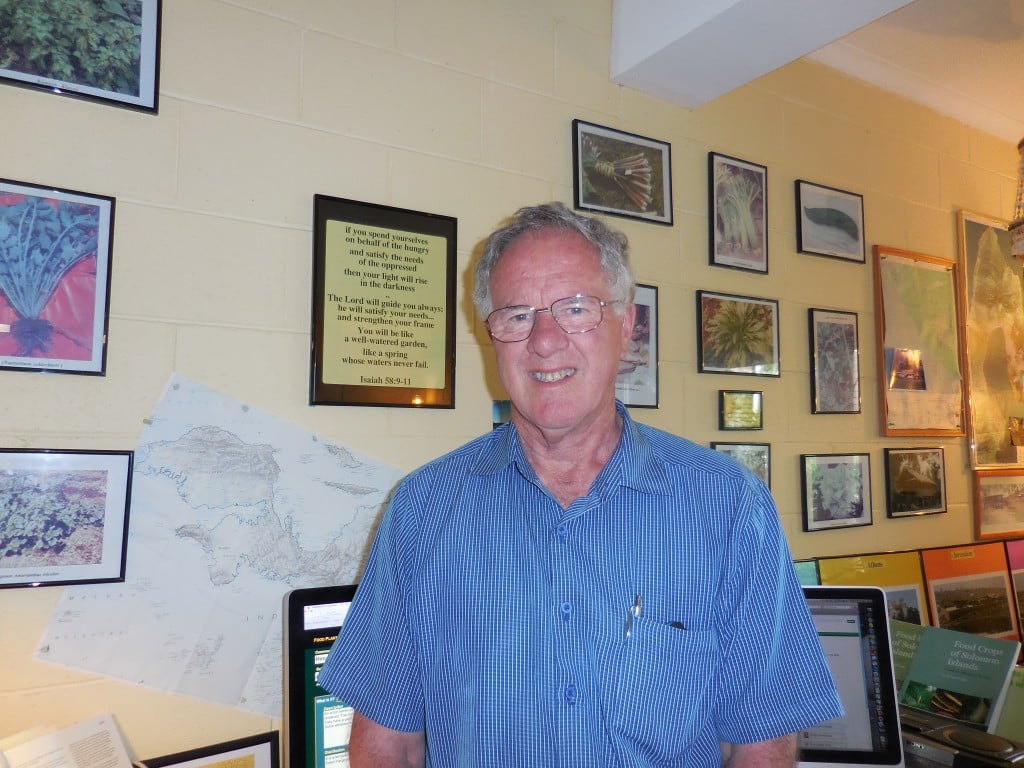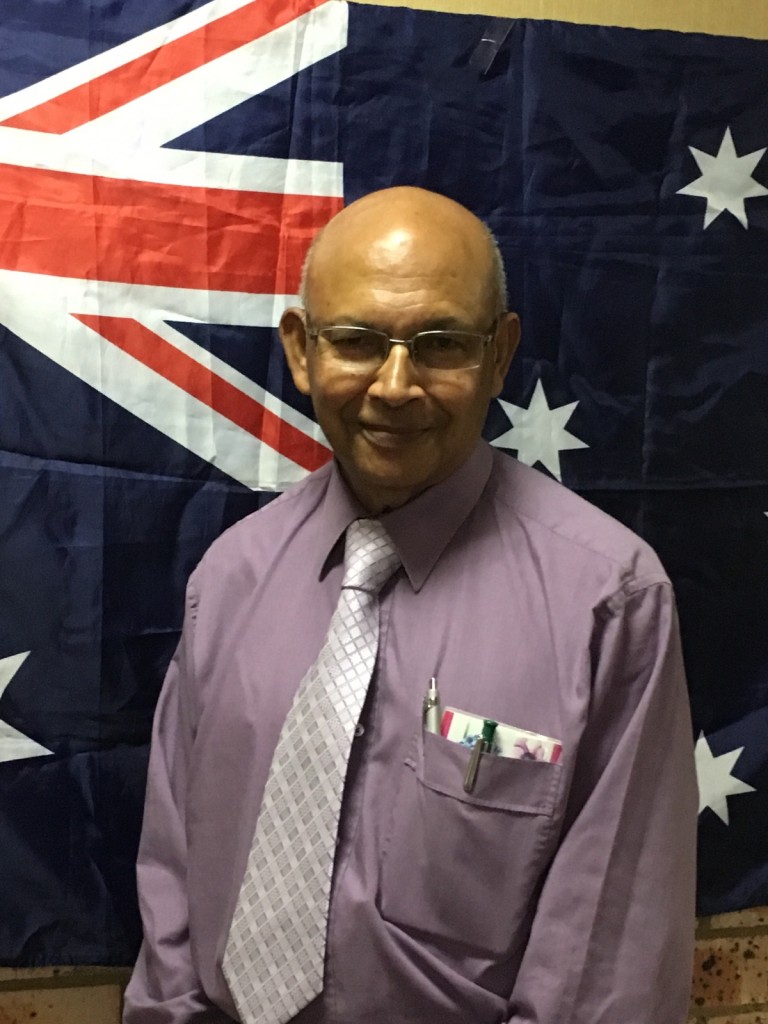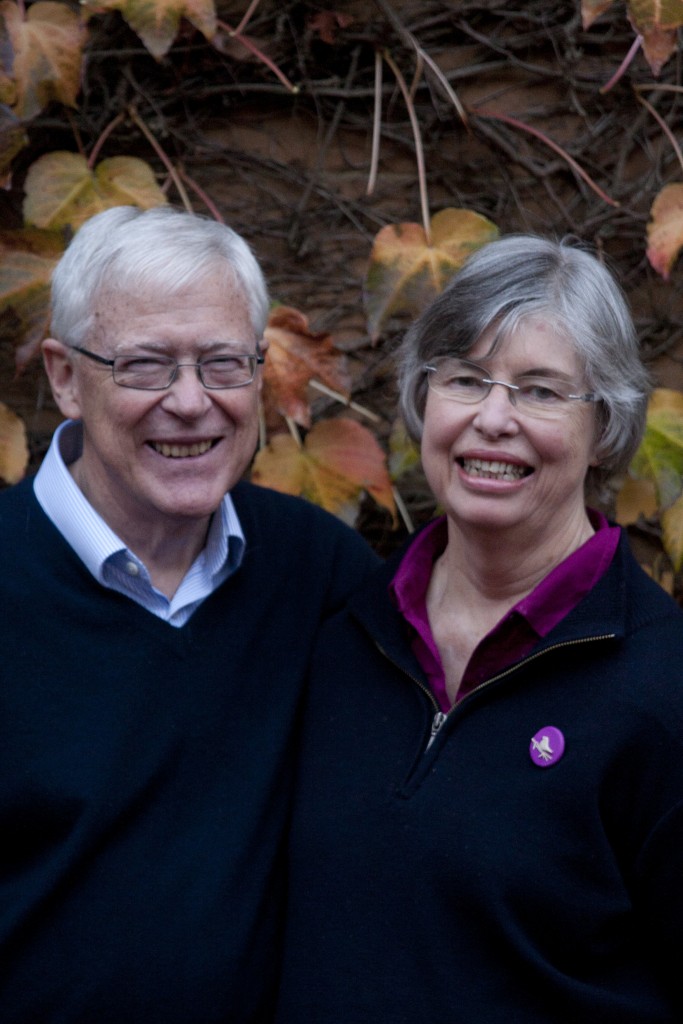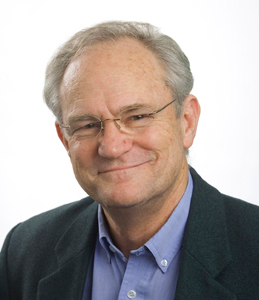Australia Day honours celebrate seeds sown on good soil
NEWS | Anne Lim

Bruce French
Agricultural scientist and retired pastor Bruce French has been recognised in the Australia Day honours list for his work in helping hungry people grow the right plants to suit their climatic conditions.
Appointed an Officer (AO) of the Order of Australia, Mr French is one of 122 church-affiliated Australians recognised today for their significant contributions to society, academia and the church.
Guided by a desire to do God’s work and inspired by Scriptures such as Isaiah 28, Mr French has made it his life’s work to teach people how to put the right plant in the right place as a way of solving world hunger.
The idea germinated in Papua New Guinea in the 1970s, while teaching at agricultural college. He noticed that most of the information being taught was about temperate plants more suited to Western agriculture.
He also observed that many villagers suffered from disease and malnutrition, even while surrounded by nutritious food plants.
When students asked him to teach them about Papua New Guinea plants rather than Australian plants, he realised there was a need to documents local edible plants along with their food values.
From these humble beginnings, Mr French has documented the entire world of food plants in a quest to make a difference to the three billion people who don’t have enough nutritious food to eat each day.
Over the past 40-plus years from his home base of Tasmania, he has compiled a database of more than 27,800 species of edible plants, with information in plain English about their food values and suitability to different climates. This database, called Food Plants International, is freely available to international aid providers.
“I have the biggest information system in the world and I just send it off to all the non-commercial big institutes in the world that are trying to feed the hungry,” he says.
Two of the churches Mr French has pastored – Romaine Park Christian Centre and Penguin Baptist Church – have supported his work as part of their ministries.
For many years, Mr French work was considered on the fringes of agro-ecology but over the past five to ten years it has become trendy.
“The message has grown,” he says.
“All the non-commercial institutes in the world are moving into the same space. They’ve worked out that local plants suit local conditions. They don’t fail because they have already adapted to the local conditions.”
He cites a group setting up in Malaysia, Crops for the Future, which wants him to visit every year to help them.
Mr French finds great encouragement in the unsolicited feedback he receives from the poor tropical world.
“I’ve been in Vanuatu and Cambodia and they have no idea their local plants are so good; they’ve got a mindset that everything that comes from anywhere else must be better. So when they suddenly realise how good their own plants are they’re delighted and they just about hug me because they like their own plants better.”
Mr French, who turns 71 next week, says he will keep on working on the database until his dying day.
“I’ve got 27,830 edible species as of this morning. But finding all the nutritional information will take me all the right of my life. But thankfully I enjoy it.”
Sydney-based eye surgeon Dr Jay Chandra has been appointed a member (AM) of the Order of Australia for his extensive voluntary service to the international community through eye care programs.
Malaysian-born Dr Chandra was prompted by his Indian-born wife to conduct free eye clinics for the rural poor in Rishikesh, northern India, beginning in 2002. He also performed eye surgery to restore sight to underprivileged people who could not afford cataract surgery. Rishikesh was put on the map in 1968 when the Beatles attended a transcendental meditation retreat there.
Dr Chandra’s Indian project came to the attention of a Sydney doctor who was a member of the Uniting Church with links with Fiji. Funded by donations from the Uniting Church and corporate gifts of medical equipment, in 2006 Dr Chandra started the Fiji Eye Project at Lautoka in northwest Fiji.
Over the past 10 years Dr Chandra and his team have operated on close to 1000 patients blinded by cataracts, restoring useful vision in 99 per cent of cases.
“I feel that I’m very privileged to have a good quality of life in Australia and to do something like this is very satisfying,” he says.
“Some of the people we restored sight to were totally blind.
“For example, there was a grandmother who had not seen her children for five years till we removed her cataracts. And you can see the tears of joy in her face when she saw her grandchildren for the first time.”
Christine Jensen, wife of the former Anglican Archbishop of Sydney, was “a bit surprised” to be awarded a Medal (OAM) in the Australia Day Honours List.
“I think the citation is really for my work with ministry wives through Moore College and Mothers Union Sydney of which I was the president for a number of years,” she told Eternity.
Even though she has now stepped down from leadership in those positions, she still finds opportunities to serve God.
“I always think God has prepared good works for us to walk in at whatever stage of life,” she says.
“When I was a teenager, when I was a mum, when I was the wife of the Archbishop and now at this phase of my life there are still plenty of opportunities in those areas.”
Mrs Jensen says she feels a little overwhelmed by being put in the spotlight because she doesn’t feel she deserves to be.
“I haven’t done anything more than serve God in the opportunities that I’ve had and every Christian woman does that,” she says.
“Now, I’ve had the opport
unities to be a leader and I’ve been able to do that because I think that’s what God’s called me to do, so I don’t feel that I deserve it any more than any other Christian woman.”
Mrs Jensen says that through her ministry she has met “so many wonderful women, wise, godly women in every aspect of my life and they have taught me so much.
“My goal is to encourage them to serve the Lord to be a Christian woman in whatever circumstances of life they find themselves. I’ve wanted to encourage people in the Lord so that they can press on to the end.”
Though feeling personally undeserving, she is pleased that in an age when Christianity is being marginalised Christians are being honoured for the way they serve the Lord,
“I hope that in accepting the award that God is honoured and glorified. That’s what I want and it’s an opportunity for that, so it’s not an opportunity for me so much; it’s for the Lord’s name to be honoured.”
When Dr John Hirt received a letter notifying him that he was being awarded an AM in the Australia day Honours List, he wrote back and said he felt somebody else was more deserving of the honour than he.
“I was trying to do that without any sense of false humility but I received a letter back saying ‘it’s not your decision; it’s a decision we’ve made’.”
Dr Hirt was part of the Jesus movement in the late 60s and set up the House of the New World in West Ryde in Sydney, which was a drop-in centre, a drug referral centre and a “university in the street”. That idea ran for ten years and carried through to his current work with young adults in university chaplaincy and teaching theology.
“Saul Alinsky, the great social reformer, said there are two types of changers – there are money changers and world changers. And so being a Christian back in the Jesus people era I wanted to encourage young adults to not be money changers but be world changers. And that’s carried over today to what we call the School of Discipleship that has been running for 12 years with hundreds of young adults gathering every year in July for a serious discipleship stuff, both personal holiness and public holiness.”
Dr Hirt explains that the public devotional aspect related to justice and politics including work with refugees.
He is pleased that in the current political climate of “selfism”, this ethos of devoting one’s life to make other people’s lives more truly human is being recognised.
“That’s been the driving force of what I’ve been about for a good many years now. I have been concerned all my life to live passionately for the truth of the gospel and that which makes life most truly human and when something nice like this happens, it’s good that those who have worked alongside of me are also being recognised.”
Dr Hirt has just retired to live at Avalon on Sydney’s northern beaches and is busy trying to finish writing books.
Email This Story
Why not send this to a friend?





